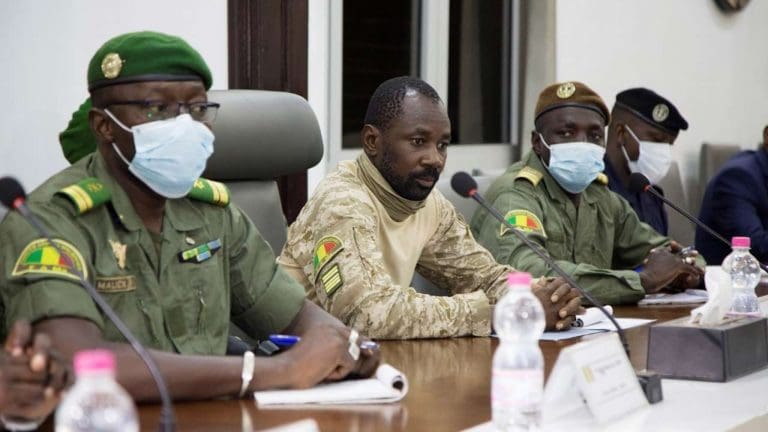The draft constitution has not yet been promulgated by the President of the Transition, Colonel Assimi Goita.
On Tuesday, March 7, the Malian League of Imams and Scholars for Islamic Solidarity in Mali (LIMAMA) held a press conference during which it announced its rejection of the term “secular state” used in the new constitution handed to the transitional president on February 27. The organization urged “all patriotic Muslims to vote against the draft constitution in its current form in the referendum” initially scheduled for March 19.
On January 10, after reading the contents of the draft constitution submitted to the President of the Transition last October, LIMAMA had called for “the outright removal of the word secular state in all its forms from the draft constitution and its replacement by multi-faith state. For the Imams, this expression constitutes “the real starting
point for the re-foundation of the State of Mali.” They denounced the fact that their request was ignored by the commission finalizing the draft of the new constitution submitted to the Head of State last February.
The draft of the new constitution submitted to the Head of State states in Article 30 that: “Mali is an independent, sovereign, unitary, indivisible, democratic, secular and social Republic. The text explains in Article 32 that: “Secularism is not opposed to religion and beliefs. Its objective is to promote and strengthen the living together based on tolerance, dialogue and mutual understanding. The State guarantees respect for all religions and beliefs, freedom of conscience and the free exercise of worship in accordance with the law.”
However, this approach does not seem to meet the Imams’ will. They think that “secularism is a trick that rulers use at will to lock up religion or religions,” noting that “this practice has been used both by the colonial power and by all regimes of the independence era that have governed our country.”
Uncertainties about respecting the electoral calendar defined by the Transition
The imams’ resentment is a new challenge to the proposed text, which has still not been promulgated by the president of the transition with a view to submitting it to the planned referendum on March 19. Many
observers fear that this date, agreed upon with the Economic Community of West African States (ECOWAS), will not be respected.
In addition to the non-promulgation of the text, the delay in the opening of the campaign, which was supposed to be open since Friday, March 3, is another issue. In addition, the Electoral College that was to be convened 45 days before the election is still not done. Not to mention the fact that the new biometric card, which should also serve as a voter’s card, has still not been widely distributed. In addition to these factors, the Independent Election Management Authority (AIGE) – the new body responsible for managing the electoral process – has
not yet been operationalized.
From then on, it will be difficult to respect the holding of the various elections scheduled for 2023, when the culmination of the entire process was supposed to be the presidential election in February 2024, which was supposed to mark the transfer of power to civilians and the return to constitutional order. Failure to meet
these deadlines could lead to further sanctions by certain organizations of which Mali is a member, such as ECOWAS.
MD/ac/fss/APA


